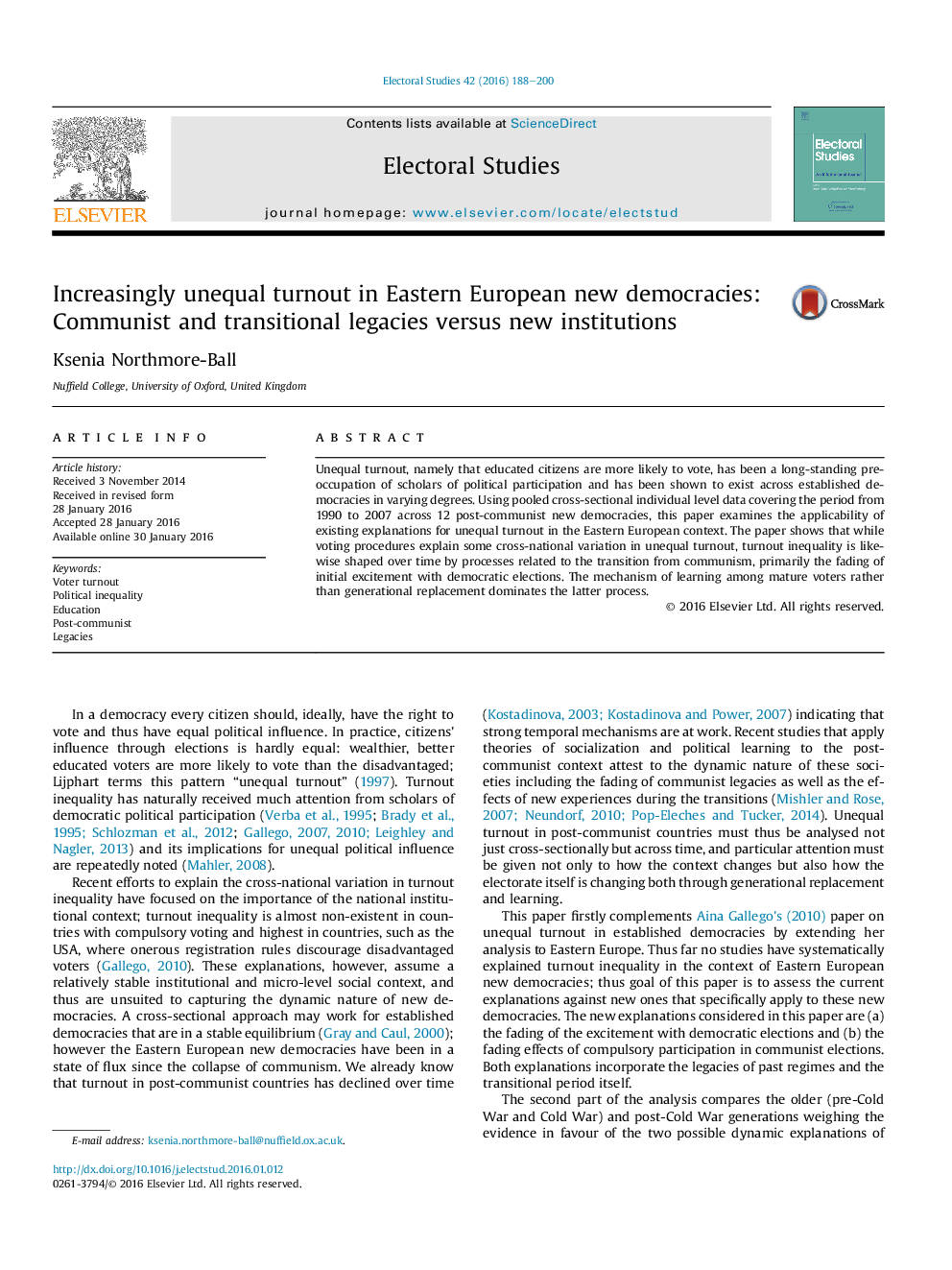| کد مقاله | کد نشریه | سال انتشار | مقاله انگلیسی | نسخه تمام متن |
|---|---|---|---|---|
| 1051684 | 1484951 | 2016 | 13 صفحه PDF | دانلود رایگان |
• I examine turnout inequality in Eastern European new democracies.
• I use pooled repeated cross-sectional data covering 46 elections in 12 countries and conduct a multilevel analysis.
• Ballot complexity, trade union membership, and income inequality explain cross-national variation.
• Turnout inequality increased as the excitement with democratic transition faded.
• Learning among older voters rather than generational replacement underpins the increase in turnout inequality.
Unequal turnout, namely that educated citizens are more likely to vote, has been a long-standing pre-occupation of scholars of political participation and has been shown to exist across established democracies in varying degrees. Using pooled cross-sectional individual level data covering the period from 1990 to 2007 across 12 post-communist new democracies, this paper examines the applicability of existing explanations for unequal turnout in the Eastern European context. The paper shows that while voting procedures explain some cross-national variation in unequal turnout, turnout inequality is likewise shaped over time by processes related to the transition from communism, primarily the fading of initial excitement with democratic elections. The mechanism of learning among mature voters rather than generational replacement dominates the latter process.
Journal: Electoral Studies - Volume 42, June 2016, Pages 188–200
